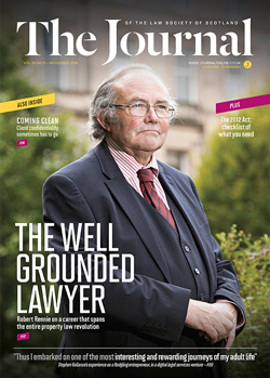To disclose or not to disclose?

The repeal of the Property Misdescriptions Act 1991 in October 2013 means that the conduct of solicitors and estate agents in their marketing of property is now governed by the Consumer Protection from Unfair Trading Regulations 2008 and the Business Protection from Misleading Marketing Regulations 2008.
Crucially, the 2008 Regulations prohibit the making of misleading omissions by businesses when dealing with consumers.
The Professional Practice team has received a number of calls from solicitor estate agents who are concerned that their role as a solicitor, which is likely to provide them with more information (e.g. from title deeds and searches) about the condition of the property and reasons for the sale than (non-solicitor) estate agents (and requiring to be disclosed so as to avoid making a misleading omission under the 2008 Regulations), will effectively put them at a competitive disadvantage. Further, disclosures may damage client relationships which are, of course, based on mutual trust and confidentiality.
It is this duty of confidentiality which raises questions as to the extent to which the 2008 Regulations displace that duty; specifically, what requires to be disclosed, what requires to be kept confidential and whether there may be conflict between the Solicitors Practice Rules and the 2008 Regulations. To help clarify the extent to which the 2008 Regulations displace the duty of confidentiality, the Law Society of Scotland obtained an opinion from Michael Upton, advocate on the compatibility and interplay of the 2008 Regulations and the Society’s Practice Rules.
Counsel’s opinion
Counsel’s opinion was that, insofar as the duty of confidentiality relates to legal professional privilege (LPP), it is a fundamental human right and not displaced by the 2008 Regulations. However, counsel also noted that the solicitor’s duty of confidentiality is wider than LPP and, where information is held by a solicitor outwith the scope of LPP, the duty of confidentiality is displaced by the 2008 Regulations and will not apply.
Thus, where matters are within the scope of LPP, the solicitor will have conflicting duties to keep information confidential under the practice rules and to disclose information under the 2008 Regulations. In such a situation, the solicitor will have to advise the client that he or she cannot continue to act unless the client instructs the solicitor to disclose the matter at issue or instructs him or her not to proceed with the advertising and selling of the property. However, where matters are outwith the scope of LPP, the solicitor will have to disclose any information which would otherwise lead to a misleading omission if not disclosed.
LPP covers information which comes to a solicitor in the context of instructions to advise their client about the law, or the law’s implications for the client’s actual or potential conduct. Counsel takes the view that communications about the instruction of a solicitor to market and sell a property would not as such be covered by LPP, albeit that information given to the solicitor to advise on the legal implications of marketing the property would be.
Commercial disadvantage?
In addition to a greater administrative burden in discriminating between confidential and non-confidential information, on the assumption that an individual who is acting both as a solicitor and an estate agent is likely to hold more information which he or she might have to disclose than a non–solicitor such as an estate agent, clients may, as a consequence of the regulations, also be discouraged from seeking legal advice from the solicitor they have instructed to market and sell the property.
In the opinion of counsel, however, if there is a solution, it does not lie in an argument for a different interpretation of, or a challenge to the validity of, the 2008 Regulations. On the contrary, it is suggested that solicitor estate agents may actually benefit from being seen as being more honest given the increased obligations upon them and could be considered as a unique selling point.
Solicitors are encouraged to contact the Professional Practice department on 0131 226 8896 for a confidential discussion on this, or any other matter regarding practice and ethics.
In this issue
- Age before duty
- Title to tissue
- Standing the test of time?
- Adjudication: a risk of abuse?
- Courts in all but name
- When is a person a “relevant person”?
- Reading for pleasure
- Opinion: John Scott QC
- Book reviews
- Profile
- President's column
- People on the move
- The designated day is here
- A tale of two systems
- LBTT: the rules and rates emerge
- The price of probity
- Play to your strengths
- Into the unknown
- A changing landscape
- Get the basics right
- Holiday pay: give us a break
- Money into thin air?
- Pathways to justice
- Flesh on the bones
- Scottish Solicitors Discipline Tribunal
- Streams of thought
- Over the finishing line
- Over the finishing line (full version)
- Law reform roundup
- The path less travelled
- The right kind of risk
- Frauds and scams – increasing awareness
- Ask Ash
- The process engineer's tale
- To disclose or not to disclose?






